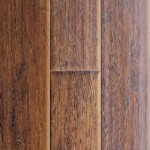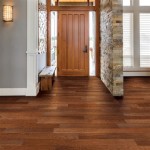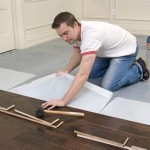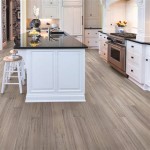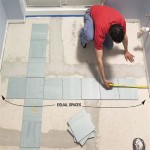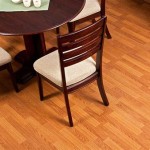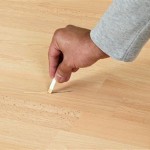Can Vinyl Plank Flooring Be Glued Down?
Vinyl plank flooring has become increasingly popular due to its durability, water resistance, and ease of installation. While many vinyl plank flooring options feature a click-lock system for quick and easy floating installations, there are also options that can be glued down to the subfloor. Gluing down vinyl plank flooring offers several advantages and is a suitable choice for various applications.
Advantages of Gluing Down Vinyl Plank Flooring:
- Enhanced Stability: Gluing down vinyl plank flooring provides a more secure and stable installation compared to floating floors. It prevents the planks from shifting or buckling, even under heavy foot traffic or furniture.
- Improved Waterproofing: When properly glued down, vinyl plank flooring creates a watertight seal between the planks and the subfloor. This prevents moisture from penetrating the subfloor, reducing the risk of water damage.
- Increased Durability: Glued-down vinyl plank flooring is more resistant to wear and tear than floating floors. The adhesive bond strengthens the floor, making it less susceptible to scratches, dents, and other damage.
- Suitable for Uneven Subfloors: Gluing down vinyl plank flooring allows for more flexibility in subfloor preparation. Minor imperfections or uneven surfaces can be compensated for by the adhesive, resulting in a smoother and more level floor.
Considerations for Gluing Down Vinyl Plank Flooring:
While gluing down vinyl plank flooring offers advantages, there are a few considerations to keep in mind:
- Professional Installation: Gluing down vinyl plank flooring requires proper preparation and installation techniques. Hiring a professional flooring installer is recommended to ensure the floor is installed correctly and securely.
- Subfloor Preparation: The subfloor must be clean, level, and free of moisture before gluing down vinyl plank flooring. Any imperfections or moisture issues need to be addressed prior to installation.
- Drying Time: The adhesive used for gluing down vinyl plank flooring requires time to dry and cure. This means the floor may not be accessible for several hours or even days after installation.
- Removal Difficulty: Glued-down vinyl plank flooring is more difficult to remove than floating floors. If you plan on replacing the flooring in the future, this should be taken into account.
When to Glue Down Vinyl Plank Flooring:
Gluing down vinyl plank flooring is suitable for areas with heavy foot traffic, such as commercial spaces, kitchens, and entryways. It is also a good option for areas where moisture resistance is important, such as bathrooms and laundry rooms. For residential applications, gluing down vinyl plank flooring may provide increased stability and durability, particularly in areas with uneven subfloors.
Conclusion:
Gluing down vinyl plank flooring offers several advantages, including enhanced stability, improved waterproofing, increased durability, and the ability to compensate for uneven subfloors. While professional installation is recommended and there are some considerations to keep in mind, such as subfloor preparation, drying time, and removal difficulty, glued-down vinyl plank flooring can be a suitable choice for areas that require a secure and durable flooring solution.

Floating Vinyl Plank Flooring Vs Glue Down 99cent Floor

Glue Down Vs Floating Lvp Which Is Better Whole Cabinet Supply

Glue Down Vs Floating Luxury Vinyl Flooring

How To Repair Luxury Vinyl Plank Flooring The Palette Muse

Do I Need To Glue Vinyl Flooring

Glue Down Vinyl Plank Flooring Ivanees Wen Lighting

Does Vinyl Flooring Need To Be Glued Down Thediyplan

Luxury Vinyl Flooring Vs Glue Direct Wood

How To Install Glue Down Vinyl Plank

Gapping Planks Glue Down Vinyl Warning Shrinking And Telling 4 Year Review
Related Posts


